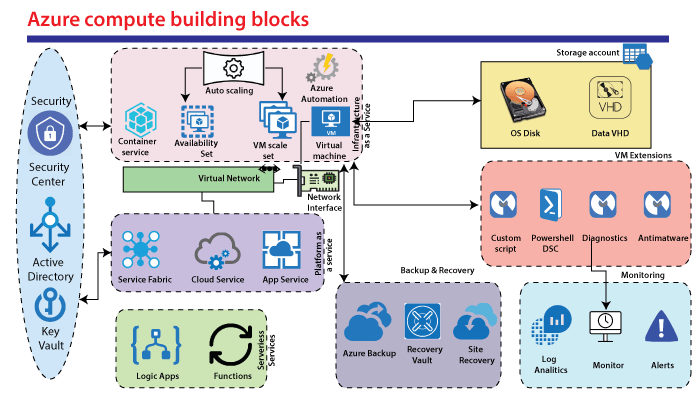Azure Compute ServiceThe word compute here refers to the hosting model for the computing resources on which our application runs. Azure compute service can be divided broadly into three categories.
The most fundamental building block is the Azure virtual machine. Using Azure virtual machine, we can able to deploy different services such as Windows, Linux within the Azure cloud. When we implement a virtual machine, every virtual machine will have an associated OS and data disk.  Azure compute optionsFollowing are the main compute options available in Azure:
When you are deploying any virtual machine, such as running some scripts, etc.. For that purpose, Azure provided several extensions such as custom script, PowerShell DSC, which stands for desired state configuration. You can have a diagnostic extension to collect all the logs that are emitted from that virtual machine. Also, we can have anti-malware software installed on that virtual machine to protect against viruses, etc. Using App service, we can deploy web applications, mobile backend services, API Apps, etc. If we have a requirement to deploy a microservices-based application, then we can use service fabric. Within the serverless service, we have Azure functions and logic apps. Using which we can able to deploy snippets of code on the cloud and trigger them without worrying about the underlying infrastructure. Three key services are associated with Azure compute service: Azure security center: It is used to understand the security posture of your virtual machines. We can define policies, and based on the policies, we can collect the information from Azure virtual machines and identify the threat. It will provide recommendations associated with that. Active Directory: It is used to control that who can access virtual machines or scale sets or availability sets or in-fact any other Azure services within Azure. Key Vault: It is used to store certificated keys or any sensitive information within Azure securely. Next TopicAzure Virtual Machines |